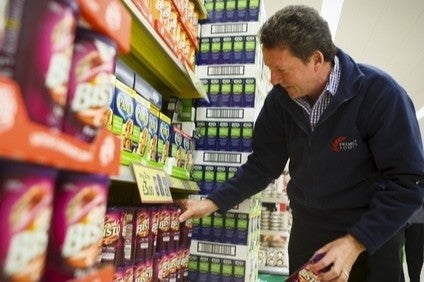Premier Foods chief executive Gavin Darby saw off a shareholder revolt this week, winning the vote on his re-election to the role. But any relief over that result will likely be short-lived as the UK manufacturer continues to face the challenge of eking out sales growth from legacy brands in low-growth categories and paying down debts and a hefty pension deficit.
In the end, after all the fierce, public criticism of his record and the calls for him to go, Premier Foods chief executive Gavin Darby lives to fight another day. But it is hard to see how he and Premier can do anything but plod on.
On Wednesday, following weeks of opprobrium from Premier’s shareholder base, notably the Hong Kong investment fund – and the company’s second-largest investor – Oasis Management, the Mr Kipling maker held its annual general meeting, at which Darby’s re-election was put to a vote.
Darby prevailed – but still had a sizeable 41% of Premier’s share roster vote against his continuing at the business.
“Smug smiles & high fives by the company & its advisors after today’s AGM – actually quite sad because only the current Premier Foods team would consider this a ‘victory’,” Oasis tweeted on Wednesday afternoon. “Shareholders deserve much better – and let’s be clear, without Nissin Foods’ 20% vote, Darby would have lost.”
Of the 59% of the vote that swung behind Darby staying at the helm, 20% came from Nissin Foods Holdings, the Japanese food group.

US Tariffs are shifting - will you react or anticipate?
Don’t let policy changes catch you off guard. Stay proactive with real-time data and expert analysis.
By GlobalDataSo where do Premier, Darby and his management team go from here?
On the morning of the AGM, Premier published a trading update for the first quarter of its financial year. Sales grew by 1.7% in the three months to the end of June but that was a period in which Premier was lapping the 3.1% decline it posted in last year’s first quarter.
While there were solid performances from Mr Kipling and Batchelors, the numbers suggested Premier’s other brands must have struggled. And Premier will find it tougher to post year-on-year growth as it moves through this financial year. “Comparatives get tougher from here, and we think margins remain under intense pressure – the company flagged that its input costs are still rising, and we think it is lower margin lines that are driving what growth there is,” one analyst said this week.
Under Darby, Premier has shown it is a business that can get its brands to grow when they are given some investment in innovation and marketing but the restraints on cash flow – amid debt payments and a pension fund deficit – mean the company can only really get behind one or two brands at a time. When Premier gives other parts of the portfolio love and attention, a brand that was a star performer finds growth hard to sustain.
“That is a challenge for them because they need to get that top line going to get the profit going to get the cash generation and debt down, which is also a major millstone around their necks. It’s not the strongest hand that the management team has got to play with unfortunately,” Shore Capital analyst Darren Shirley told just-food today (20 July).
Premier has indicated it would be ready to offload assets to help raise funds to invest and said this week it had held exploratory talks with Nissin over the Batchelors brand but they had come to nothing.
The pension deficit is seen as a major factor that would dissuade would-be suitors. Darby has received flak for McCormick & Co. withdrawing its interest in Premier in 2016 after the UK business spurned the US manufacturer’s advances. However, McCormick never tabled a firm offer and Premier insists the spices and seasonings giant walked away after some due diligence on the pension position.
Meanwhile, critics of Premier and Darby see Nissin’s position as the largest shareholder on the roster as effectively like a poison pill that also puts off takeover interest.
Darby got over the line on Wednesday but it looks like all he and Premier can realistically do is plough on, trying to eke out growth from a stable of legacy brands in mature, low-growth categories in one of the most challenging markets in the business.
“It’s a business that’s got a number of constraints and it is very difficult to see how they work their way out of them in the short term. It’s just a slog,” Shirley said. “It’s been a slog for a long time.”





